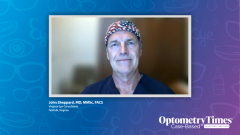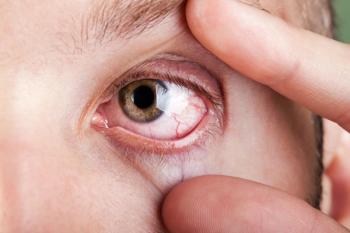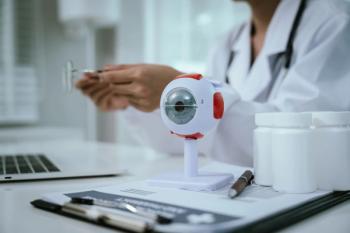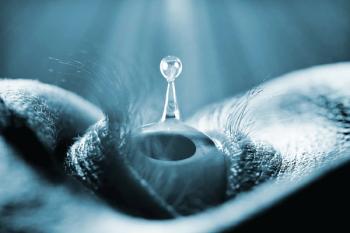
Impressions and Takeaways From Patient Case No. 1
John Sheppard, MD, discusses the impact of continuous contact lens use on dry eye, often masking its signs, and explores treatment strategies for patients using contact lenses.
John Sheppard, MD: So let’s dissect our frequent flyer in a little more detail. We know that there’s a variety of factors, some long-term, perhaps some short-term. She doesn’t engage in deliberate risky behavior. She exercises, she has an excellent diet. She’s not taking any deleterious drops [such as] antihistamines or over-the-counter tears, or, worse yet, vasodilators. At this point, we really want to know what worked best for her. She’s clearly got a bad dry eye that’s most likely evaporative in nature. Has she used cyclosporine, lifitegrast, and loteprednol consistently? What was her experience with the varenicline? Did she use the nasal spray properly? Did she give any of these prescription medications a full 3 months to really give her an idea of their efficacy and tolerability?
After that discussion, we may ask her to return to the one that seemed to work the best. And we would ask her to try to rid herself of these overnight contact lenses. In fact, rid herself of the contact lenses altogether for a period of time, and then recommend that she use daily wear disposable lenses and only initially when absolutely necessary. For instance, a wedding, a television appearance, or a very important social event. Otherwise, I would ask her to wear glasses that themselves reduce evaporative tear loss. This is very important. And if she’s using drops with preservatives and using tears very frequently, we would try to mitigate that random allocation of resources.
We review the medical literature once she’s talked to her medical doctor about changing her hypertensive therapies. We do see that multiple patients have a somewhat lower risk for dry eye, but those who have been on contraceptives have a higher risk.
The literature on hormone replacement therapy is contradictory. My take is that it’s important to remain consistent with exogenous medical intervention, as well as exogenous nutritional intervention, but perhaps to address the true need for [hormone replacement therapy] in this case. We would also look now for punctal plugs, which are benign [and]…increase tear retention, especially with the use of contact lenses, and a cornea that looks like this, especially in a patient with meibomian gland disease, where her evaporative tear loss is very likely to be high. We can quantify these parameters with a Schirmer test or a tear-film breakup time, or meibography, which undoubtedly in this patient is deficient, and motivate her to stick to a consistent treatment regimen. I believe that there is toxicity involved here, probably multiple drops, and multiple preservatives are placed in the eye, and that perhaps an occlusion of the puncta with a dissolving collagen plug. I don’t like mechanical plugs because they rub the eye and retain inflammatory mediators, makeup, and bacteria with biofilm.
Once these interventions have been accomplished, I believe we can have a new starting point for this lady, and reconsider her daily wear contact lens disposable use. I hope this approach allows her to increase her comfort, to increase her contact lens wearing time eventually, and perhaps if she’s not really tolerant of contact lenses anymore, consider a refractive lens exchange. After all, she is myopic, and she will obtain a wonderful improvement in her overall vision with that surgery, understanding the somewhat increased retina risk with, of course, a mandatory depressed scleral exam by a retina specialist prior to any type of intraocular surgery.
Transcript is AI-generated and edited for clarity and readability.
Newsletter
Want more insights like this? Subscribe to Optometry Times and get clinical pearls and practice tips delivered straight to your inbox.






























